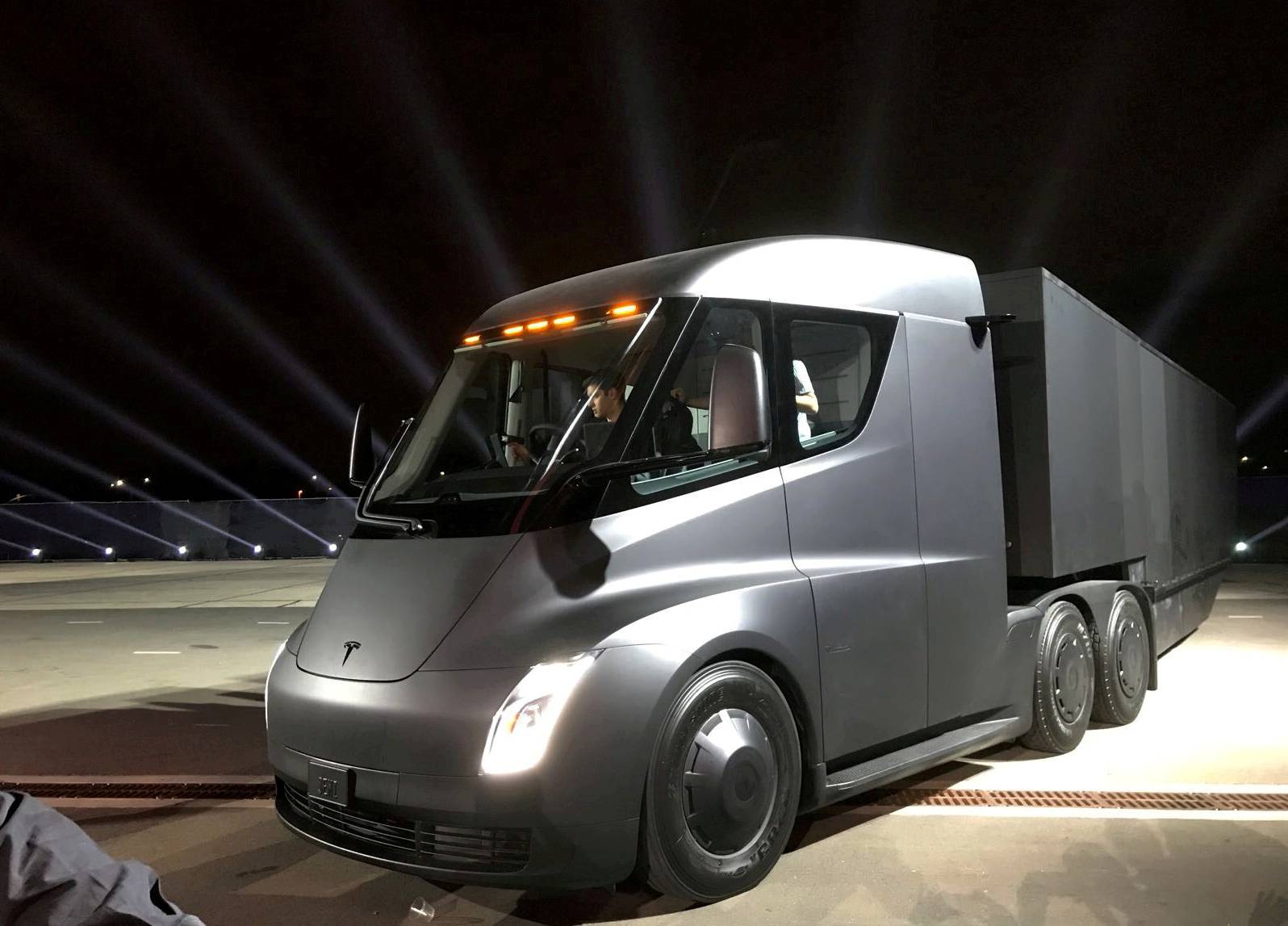Next month, Tesla plans to deliver the first of its electric Semi trucks that are able to haul a full 40 ton-load some 500 miles on a single charge. These massive batteries-on-wheels may accelerate the transition to electrified transport, but those responsible for delivering the power are starting to ask: Are we ready for this?
Probably not, according to a sweeping new study of highway charging requirements conducted by utility company National Grid. Researchers found that by 2030, electrifying a typical highway gas station will require as much power as a professional sports stadium — and that’s mostly just for electrified passenger vehicles. As more electric trucks hit the road, the projected power needs for a big truck stop by 2035 will equal that of a small town.
Even the authors who planned the study were caught off guard by how quickly highway power demands will change. A connection to the grid that can handle more than 5 megawatts takes up to eight years to build, at a cost tens of millions of dollars. If power upgrades don’t start soon, the transition to electric vehicles — let alone electric trucks — will quickly be constrained by a grid unprepared for the demand, warned Bart Franey, vice president of clean energy development at National Grid.



















With your current subscription plan you can comment on stories. However, before writing your first comment, please create a display name in the Profile section of your subscriber account page.